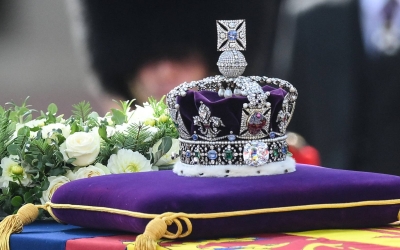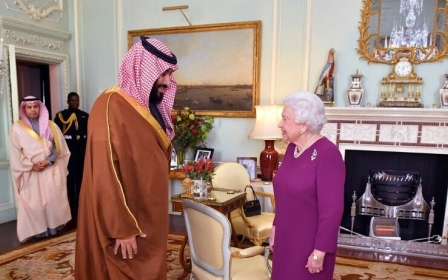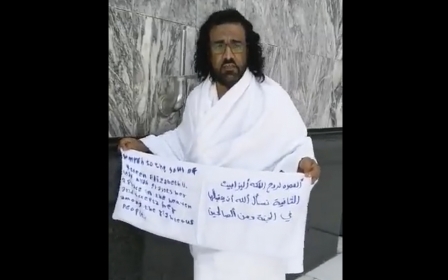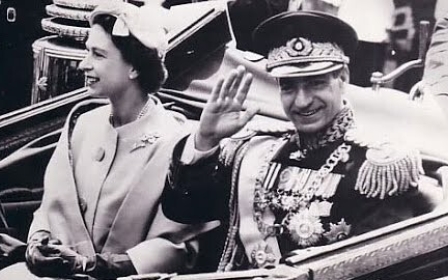Queen Elizabeth II: Police warn Muslim terror offenders to avoid late monarch's funeral
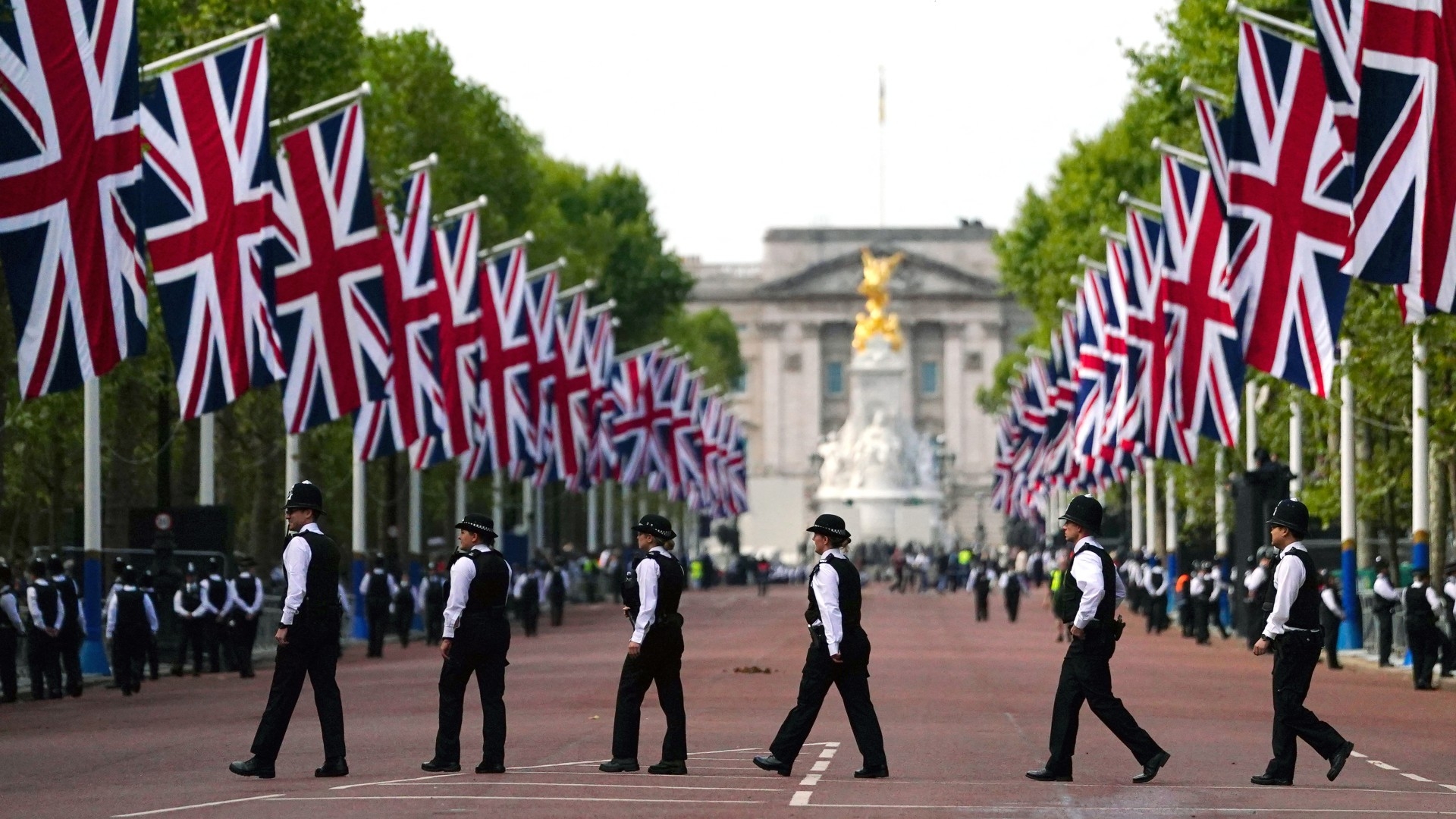
UK police officers have quizzed Muslim men convicted under terrorism legislation on their views of Queen Elizabeth II's death and urged them to avoid central London during her state funeral on Monday, Middle East Eye has learned.
At least half-a-dozen men, convicted for non-violent offences under the Terrorism Act, were either visited or called by Greater London's Metropolitan Police counterterrorism command (SO15) this week over their plans on the day of the queen's funeral, according to human rights advocacy group Cage.
The men are all under notification requirement, which means they are subject to strict monitoring and reporting by counterterrorism authorities. The requirements most commonly relate to their careers and personal lives, and very rarely to public events.
In one instance, a plain-clothed SO15 officer visited the home of one of the men earlier this week, whose elderly mother told the officers that her son was at work.
The officers then intended to turn up to the man's workplace over an "urgent matter", before agreeing to meet at a local police station. There, they asked him about his views on the queen's death and his plans for the state funeral on Monday.
New MEE newsletter: Jerusalem Dispatch
Sign up to get the latest insights and analysis on Israel-Palestine, alongside Turkey Unpacked and other MEE newsletters
He did not confirm whether he would be attending, prompting authorities to follow up with him later in the week.
"I was alarmed by the unannounced police visit to my home. My mother, who's extremely ill, was visibly shaken as she thought she will lose me again," he said.
"For it to be all about the queen's funeral felt so unnecessary. I've rebuilt my life and have been compliant with all conditions placed on me for many years. The police should respect that."
'Misuse of police time'
Police officers asked several others convicted under the Terrorism Act the same questions, urging them to avoid the funeral and central London altogether on Monday.
MEE has seen a letter written by Cage to Richard Smith, the head of the Metropolitan Police counterterrorism command, raising concern over the issue.
"While public safety is of course paramount at such public events, such actions seem excessive in light of the already stringent conditions placed upon such individuals in their monitoring and reporting obligations," the letter states.
"The targeting of these individuals - in absence of an evidence-based assessment of immediate risk of committing violence - amounts to police harassment."
In the letter, the advocacy group asked the Metropolitan Police to clarify if the visits were limited only to individuals on notification requirement under terrorism legislation, and if it only impacted Muslim offenders.
Middle East Eye has reached out to the Metropolitan Police for comment, but had received no response at time of publication.
"It seems an incredible misuse of police time to pursue men who are fully compliant with their notification orders to simply ask them if they intend to attend the queen's funeral or not," Anas Mustapha, head of public advocacy at Cage, told MEE.
"The police approached them with incredible urgency, causing unnecessary anxiety and stress. [It] is wholly unjustified given the lack of any evidence of ill intent by these men."
Mustapha added that, coupled with the recent arrest of several republican protesters, the police were "openly exploiting the public mood to extend their powers of intimidation and harassment".
Cage confirmed that similar visits and calls were made earlier this summer during the Commonwealth Games, with Muslim men convicted of non-violent terror crimes urged not to travel to Birmingham where the Games were held.
Elizabeth II's funeral, which has been marked as a public holiday in the UK, will be the first state funeral since the death of former prime minister Winston Churchill in 1965.
The ceremony will see the queen's coffin transported from Westminster Hall to Westminster Abbey, in central London, and finally to Windsor Castle, in the western outskirts of the capital. It will be attended by representatives from across the world, including from several Middle Eastern states.
This article is available in French on Middle East Eye French edition.
Middle East Eye delivers independent and unrivalled coverage and analysis of the Middle East, North Africa and beyond. To learn more about republishing this content and the associated fees, please fill out this form. More about MEE can be found here.


